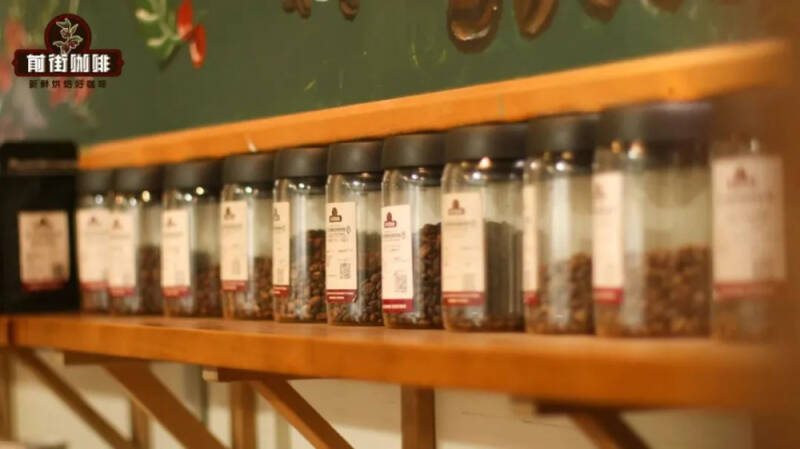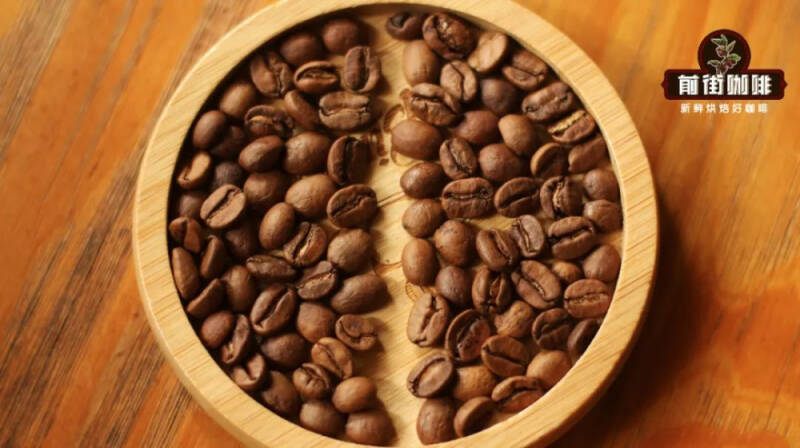Fresh and stale coffee beans, can you make them by hand? What do you need to pay attention to when making coffee?
In daily life, when we buy any food, we will pay special attention to the production date, and then check its shelf life, because it is common sense to try not to eat food after the expiration date.
When it comes to coffee beans, the production date refers to the date of baking, that is, the time node when the raw beans are cooked. The difference is that we usually pay attention to this baking date not because we are worried that it will pass its expiration date or go bad, but more because we want to taste the best flavor of this coffee bean, which is often referred to as the appreciation period in front of the street. this period is usually within 1.5 months after baking.

Friends with experience in brewing should have encountered this situation: although they are the same type of coffee beans, they have only been roasted for a day or two, which is very fresh. But the last bag of unconsumed "old beans" still has more than ten grams, and the baking date has already exceeded a month. In the spirit of not wasting, everyone will finish it.
However, some people are used to the parameter of 15g / 20g powder. In order to make up a pot, they mix the new beans with the old ones. Here comes the question: will the taste of coffee be affected by mixing and extracting two beans with a difference in baking time?

Don't worry, allow Qianjie to do a comparative experiment first, and then answer these questions one by one.
Here in front of the street, we found two coffee beans whose baking dates are exactly one month apart. One is a bag of "freshly baked" beans on February 29, and the other is a bag of "old beans" that have been opened for some time. The baking date is January 30. In the front street, three groups of coffee beans with different degrees of freshness were compared, and the other parameters were kept consistent as far as possible, and their powder layer state and flavor performance were recorded in the process.
Coffee beans: Alida Manor Kaduai Powder quantity: 15g Powder / Water ratio: 1:15 Water temperature: 93 ℃ filter Cup: V60 Grinding: EK43s scale 10 three groups of Coffee: old beans, New date beans, New and Old beans mixed at 1:1
Coffee in the old date group; there were drum bags during steaming, but the arc formed was not big, the powder bed showed signs of dehydration and drying up in about 25 seconds, and the water was stable in the extraction process.
New date group coffee: after water injection, the powder layer will soon bulge into a hamburger, the whole process of water injection exhaust is obvious and lasting, the bubbles floating on the surface are large and irregular. The coffee liquid was dripped and filtered in 1 minute and 52 seconds, and finally there were many small bubbles on the wall of the filter cup.
New and old mixed group coffee: from steaming, circular water injection, to powder bed performance is not much different from the old group, occasionally there are one or two big bubbles. The launching process is also very stable, and the coffee grounds are covered with foam.
In terms of aroma, the old date group performed best, drinking with the sour and sweet of ripe peach and citrus, accompanied by raisin-like fermented aroma and caramel tail, with obvious fruit juice and moderate thickness. In contrast, the entrance of the new date group is mainly red berries, citric acid and other rising flavor, the taste is slightly thin, the aroma is not as rich as that of the old date group, and the aftertaste is fleeting. The final mixed group, Alida, is in the middle of the first two, with sweet citrus acids and honey, with a hint of tea and caramel in the finish, but very short.
Beans with too fresh dates are still in the exhaust stage, and the carbon dioxide emissions affect the dissolution of some aroma substances, so the flavor performance is naturally not as good as that of "raised" coffee beans. On the other hand, the "raised" coffee beans have entered a stable state, and this is the time when the flavor is at its best, as long as it is preserved and during the taste period, it is almost not affected by the baking date.
With the above flavor differences, Qianjie believes that in addition to being affected by the exhaust of coffee powder, but also because the three pots of coffee are brewed one by one and tasted at the same time, so there is a sequence, there is a certain difference in temperature. And it's almost hard to tell the difference between the three pots of coffee if you don't compare them directly. As the temperature drops, the gap between the three pots of coffee becomes smaller.
So, if the new bean you get is really close to the baking date, and you don't want to waste the remaining "old beans", you might as well hold back your greed and leave it intact in the shade for three or four days. After the carbon dioxide gas is partially released, put the two waves of beans into a pot and cook them. In this way, the operation of "spelling beans" will not be affected by gas emissions, and on the other hand, it can also be consumed while the "old beans" are still in the appreciation period.
-END-
Front Street Cafe
No. 10 Baoqian street, Yandun road, Dongshankou, Yuexiu district, Guangzhou, Guangdong province
Read 197
Important Notice :
前街咖啡 FrontStreet Coffee has moved to new addredd:
FrontStreet Coffee Address: 315,Donghua East Road,GuangZhou
Tel:020 38364473
- Prev

Why must ice cups be used in the production of Dirty? What does dirty mean? How?
Even today in 2024, the popularity of Dirty remains the same, and the production method of Dirty is in full swing on various platforms. When you think about it, the main points of its production are nothing more than three elements: the temperature of the cup, the concentration of milk, and the obvious layering.
- Next

Ethiopian Coffee beans | introduction to the processing of coffee beans by Amedilaro ASD in Yega Xuefei production area
When it comes to coffee, I have to mention Ethiopia, which is recognized as the birthplace of coffee. Ethiopia has a long history of coffee and countless native varieties of coffee. Ethiopia is located in the northeast of Africa, which is dominated by mountain plateaus, which accounts for 2% of the country's total, and the East African Rift Valley runs through the whole territory.
Related
- What grade does Jamaica Blue Mountain No. 1 coffee belong to and how to drink it better? What is the highest grade of Blue Mountain coffee for coffee aristocrats?
- What are the flavor characteristics of the world-famous coffee Blue Mountain No. 1 Golden Mantelin? What are the characteristics of deep-roasted bitter coffee?
- Can I make coffee a second time in an Italian hand-brewed mocha pot? Why can't coffee be brewed several times like tea leaves?
- Hand-brewed coffee flows with a knife and a tornado. How to brew it? What is the proportion of grinding water and water temperature divided into?
- What is the difference between Indonesian Sumatra Mantinin coffee and gold Mantinin? How to distinguish between real and fake golden Mantelin coffee?
- What does bypass mean in coffee? Why can hand-brewed coffee and water make it better?
- Unexpected! Ruixing Telunsu lattes use a smoothie machine to foam milk?!
- % Arabia's first store in Henan opens into the village?! Netizen: Thought it was P's
- Does an authentic standard mocha coffee recipe use chocolate sauce or powder? Mocha Latte/Dirty Coffee/Salty Mocha Coffee Recipe Share!
- What is the difference between Vietnam egg coffee and Norway egg coffee? Hand-brewed single product coffee filter paper filter cloth filter flat solution!

